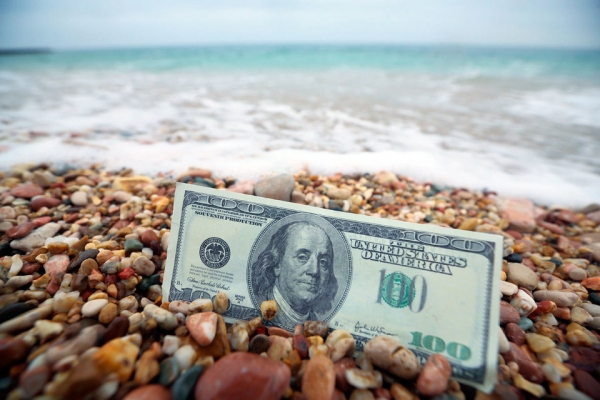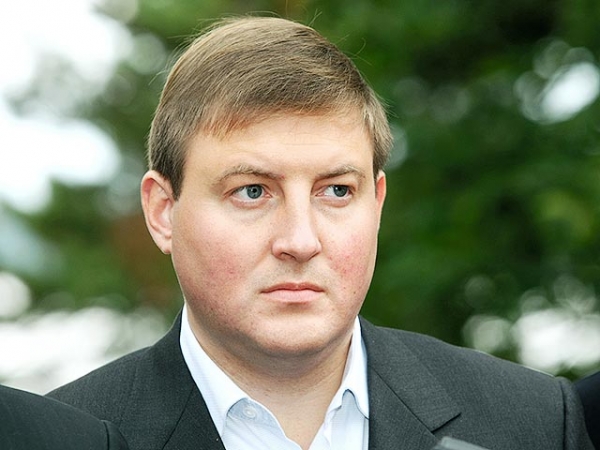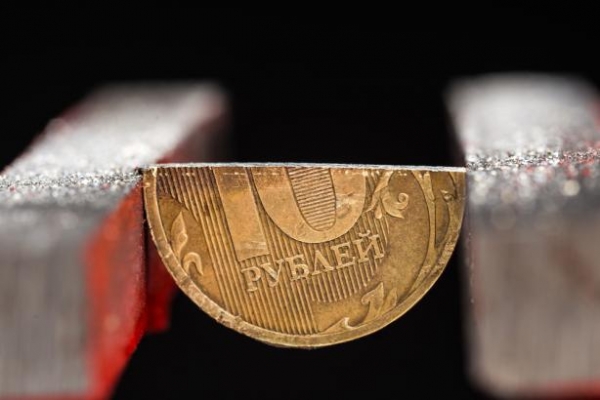About them grew only 15%.

Despite the efforts of the authorities, Russian business still prefers to keep their money in offshore
E. Reasonable / Vedomosti
After the Christmas holidays, many large Russian businessmen decided to stay abroad. A significant part of the Russian Union of Industrialists and entrepreneurs (RSPP) was to spend more time outside of Russia, including because, having lived abroad for more than 183 days in a year, you can withdraw from the Russian tax residency, – not many people like the law on controlled foreign companies (CFC) that introduces a new control mechanism and taxes on their foreign assets, told “Vedomosti” one of the members of the Board of Bureau of the Union. Than they are dissatisfied?
What a terrible KICK
In 2015, the government first demanded that businesses disclose foreign assets.
Until June 15, 2015, the Russians had to notify the Federal tax service (FNS) to participate in the CFC. Required to report the owners share exceeding 10%. From 2017, they will have to pay tax on undistributed profits of a CFC at the rate of 20% for legal entities and 13% for natural persons – owners of a share of 50%.
The tax will be taken from the companies, which profit at the end of 2015 amounted to RUB 50 million or more.
From 2016, the tax will be required to pay the owners share of 25%, and even with a profit of 30 million rubles, and from 2017 – 10 million rubles.
To declare the profits of a CFC entities have for the first time on March 28, 2017, and to natural persons – April 30, 2017, upon the filing of a Declaration for income tax for 2016
For false information or nonpayment of the tax entails a fine of 20% of the underpaid amount as well as accumulated penalties.
Don’t have to pay tax, if the effective rate at which CFC pays tax abroad is not much lower than in Russia (is at least 75% weighted average rates).
Also exempt from payment of NGOs, companies from the countries of the EEU.
Will not affect the law and companies that are engaged in active business receive 80% of revenues, as well as holding companies, receiving dividends from such companies.
But to pay the tax would have in any case, if a CFC operates in the country from the black list, compiled by the FNS.
The money hiding
While CFC law is in force since January 1, companies and entrepreneurs easily hidden from FNS, found “Vedomosti”.
During the year there were only about 7000 notifications, said the Federal official.
Of them in time (before 15 June 2015) – 1004 from legal entities from individuals 2199.
If we remember that, according to conservative estimates, foreign companies have 50 000 Russian organizations, it turns out that reported less than 14%, estimated by the managing partner of “Shchekin and partners” Denis Shchekin.
According to the research company CRIF Teledata, only in Switzerland 2070 Russians are owners, members of boards of Directors, General Directors or the authorized officials of the local companies.

The Ministry of Finance has prepared amendments to facilitate capital Amnesty
They will not be able to use those already filed a Declaration
Mostly reveals the average business and physical persons, and show the main assets in a transparent jurisdiction, with which to pay the tax is not necessary, summarizes deofshorizatsii official.
Big business for the most part doesn’t reveal anything, he continues: many want to understand whether he could get the tax authorities to information about CFC in the offshore.
Major companies are eyeing the law confirms tax consultant.
If the tax authorities detect CFC in 2016, they can only fine the owner for failure to notify about it, and it’s only 50 000 rubles., says Shchekin.
To assess additional taxes for the last tax period if find KIK only after 15 June 2017.
“My experience indicates that while there is no enforcement, 60-70% of clients owning foreign assets, prefer to do nothing,” – says the partner of UFG Wealth Management Dmitry Maples.
The business is preparing himself for the law, I agree to the member RSPP: before you open up, many people want to see how the law is applied.
De-offshorization went to the grassroots level inspections, and how they will interpret the law, it is unclear, he explains.
The second reason why the Russians are afraid to disclose information that is necessary to list in the notice, all foreign assets of Russian resident owns-even indirectly – through a Russian company.
Some description of the structure of the holding company holds 30-40 pages and I don’t want leaks of this information, says the source, “Vedomosti”.
One of the tax consultants recalls how his client filed a notice of KIK, a grass-roots inspection of the area sent a notice straight to the FSB.
“I see that especially no one wants to declare the money in the accounts of offshore companies”, – says the banker specializing in private banking.
Back home
Sanctioned Arkady and Boris Rotenberg became the direct owners of the oil and gas contractor – “SGM” (the data “SPARK-Interfax”), previously owned by a Cypriot Milasi Engineering Ltd.
In December 2015, Gennady Timchenko, also included in the sanctions list, changed the scheme of the ownership of the holding company “Volga group”.
According to “SPARK-Interfax”, in December the businessman became the owner of 99.99% of its shares (the remaining of 0.01% at open company “Volga group holding”), whereas previously they belonged to the Cyprus Volga Resources Ltd. and VRN Luxembourg Sarl.
At the end of 2014 changed the structure of ownership of the assets of Alisher Usmanov. He owned and partners of USM Holdings restructured assets, it owned controlling stakes in MegaFon and metalloinvest were translated into Russian “daughters”.
In February 2015 the group of companies “Mother and child” (Medical MD) announced that becoming a tax resident of Russia.
Before the Russian divisions of the company owned Cypriot MD Medical Group Investments. In October 2015, the company “New cloud” also came from foreign jurisdictions – previously, 43% of the company belonged to the “Service plus” (according to “SPARK-Interfax”, it belonged to the Cypriot Jurel Holdings). Large-scale restructuring and return of the assets in the Russian jurisdiction conducts the management company of Viktor Vekselberg and his partners Yevhen Olkhovyk and Vladimir Kremer Renova group, from the data “SPARK-Interfax”.
In December, the biggest beneficiary of construction of LSR group Andrey Molchanov began to directly hold 57,56% of the company’s shares, before they were owned by offshore AEM Asset Management Ltd. “Action in a foreign jurisdiction was convenient for primary and secondary offering on the stock exchange. Our shares were placed on MICEX, and Depositary receipts on the LSE.
In the current situation, the most convenient way to store stock in Russia,” explained Board member, commercial Director of LSR group Yuri Ilyin.
This is a technical process, and it does not affect the management and control of LSR group – the share of the founder and the main shareholder Molchanova does not change.
To swarnadhipathi full text
If every year to pay tax on retained earnings in a few years she just over explains the entrepreneur unwillingness to show on your foreign “purse”. “Well, I have a few years to pay taxes on the profit?
But if I don’t want to invest their capital either in production or in any assets?” – outraged businessman.
Transferred ownership of businesses in Russia are public people and companies – and sometimes for political reasons (see). At least part of state-owned companies on time sent information to FNS.
For example, “Gazprom” has notified the service of participation in foreign organizations in a timely manner, VTB group was referred to on the notification of the Bank of KIK, said their representatives.
Sberbank and Rosneft at the request of “sheets” have not responded.
Some are just forced to open up.
The most problematic aspect of the law was for Bank holding companies that invest in the financial business where a lot of passive organizations that fall under the category of KIK, said PwC partner Ekaterina Lazorina.
All non-Bank financial institutions, including broker-dealer companies, asset managers, investment banking division, accumulate passive income, she explains: not all of the banking subsidiaries has a Bank license.
These companies possibly distribute dividends, so they do not fall under the tax, she says. Many are restructuring, confirms partner, KPMG Anna Voronkova: get rid of unnecessary structures, repay intra-group debts, including not to accumulate unnecessary paper income.
Some liquidate the foreign company and take the assets, says Lazorina.
How to go from tax
Detection schemes with KIK requires intricate work of the tax inspector, not everyone can do it, hopes of a major businessman.
“To pay the tax will have only 2017, so I decided to wait and consider all options, perhaps even reduce retained earnings – a part to translate in the deep offshore, not communicating with Russian tax,” says another entrepreneur.
At the end of 2015 FNS has published a first draft of the list of countries that do not share either a bad exchange with Russia of tax information.
The first version scared the business: he was 3 times more than the same list of Ministry of Finance and among selected jurisdictions 119 was a lot of those that are traditionally considered to be transparent.
“The client is in time uncovered on all of their assets in Switzerland, being sure that the tax on undistributed profits will not have to pay, says consultant auditing company.
And seeing the list, he was shocked, realizing that the tax is still waiting.”
But the new version of the list on which the service plans to adopt by April 1, turned out to be more liberal.
From the project going to exclude the UK, Switzerland and Austria.
The list will be reviewed and further promised the representative of the FTS.
Later he can be excluded even many of the popular offshore, e.g., Bermuda, Cayman and Seychelles Islands, Isle of man, Guernsey, Mauritius, Aruba, told the official service.

The capital Amnesty can be extended for another year
While it took only a few hundred people
3
However, many entrepreneurs refuse tax residency Russia, says EY partner Marina Belyakova, especially popular for registration as a taxpayer in the UK, Switzerland, Cyprus and Malta.
Change of tax residency generally is not a problem – this question is not more than two months, because the business and so spend an average of four months per year overseas: winter and summer holidays, trips to meetings of the Board of Directors, the negotiations, said a member of the Board of RSPP.
Of course, some businessmen understand that throwing your business in Russia for almost half a year, they run the risk of actually losing it, and some for this reason, even thinking about going back to Russia, says tax consultant.
In addition, taxes in white jurisdictions is higher than in Russia.
For example, the tax on accumulated Bank deposits of more than RUB 15 million in the UK is 42.5%.
“High taxes don’t scare, – argues a major businessman. – I am not more than a week, it is more important to secure your assets and to make it abroad easier.” “Although CFC is a transparent jurisdiction and the tax will not have to pay, to open still will not” – says the employee of a large company with foreign assets, referring just to the security issues.
As buried assets
In search of the most effective and cheap way to hide assets experience lawyers and savvy clients give rise to many different schemes.
Owners can transfer foreign entity trusted to persons residing in other jurisdictions, or distribute them to relatives so that control of the CFC does not exceed 10%, says Shchekin. Or, for example, rewriting trusts for children living abroad.
“We have recently had several cases of “burying” assets, – told “Vedomosti” employee of a major law firm.
In one the client chose to re-register their shares in a foreign company to non-resident of Russia, and in the other we return the ownership of assets in Russia, “removing the” offshore and transferring them into specific individuals, relatives of clients”.
Most of these schemes are fraught with partial loss of control of assets recognizes a lawyer:
“Imagine suddenly die your distant relative. How will you return the money?”
There’s still a risk that the tax authorities will use the norm of the actual control.
Enough to face CFC controlled in the interests of his spouse and minor children.
The second way to circumvent the law is to change the structure of the holding company and translate it into deep offshore, for example in Marshall Islands or in Panama, “dig deeper,” says Shchekin.
Another popular scheme is to record the KICK on a second passport: to the Russian authorities so the person becomes invisible, but only if the tax is not calculated via the migration service.
You can just divide the assets.
“There are a small business, which pay taxes, and passive profits offshore, which are not reported, so that the tax authorities are unlikely to complain about”, – said the employee of a large company with foreign assets.
But the company can be lighted, for example, if she has a contract with a controlled person or she is a shareholder, warns Voronkova, then the tax authorities can request information about it, including the structure of its ownership, the tax authorities of another country. To disclose information even no black jurisdiction, enjoys a Federal official, so that the tax authorities will start to receive from them sufficient information in 3-5 years.
Russia has ratified the OECD Convention on mutual tax assistance, which provides for automatic data exchange with its members, starting in 2018, she will technically be able to use the mechanism.
You can find opaque jurisdiction, but it is a temporary solution, warns Lazorina business with them is too expensive, and information is becoming more open.
<button class=”b-button b-button_fullscreen ng-scope ng-animate ng-hide”></button>

<button class=”b-button b-button_fullscreen ng-scope ng-hide”></button>









